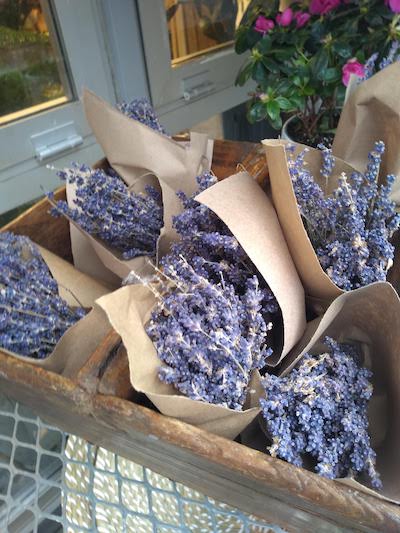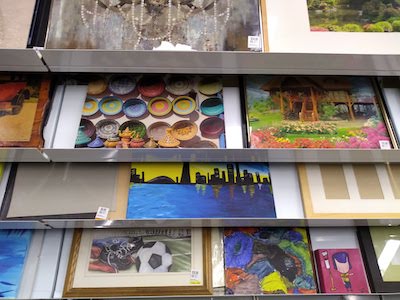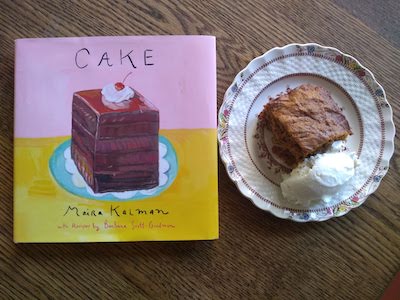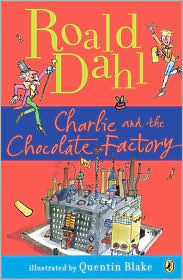March 4, 2019
Gleanings

- I read like a buzz saw cuts wood.
- But I think I’m often my best self in hotels.
- I’m at the point in my years when, looking back, I can see that my life has been an accumulation.
- There is maybe no better time, then, to invest some effort in happiness, in making good for ourselves and others.
- Despite my reproductive difficulties, I’d forgotten that the simplest things are often the hardest to make.
- “There is a sense of the established power being threatened by women gaining respect,” she said.
- And those words became a sentence and the sentence became a paragraph…
- “The idea of male experience being representative of general experience, and female experience being women’s experience only,” she says, “is depressing.”
- It is simply one of the saddest songs about unrequited love I’ve ever heard, and I think about it almost constantly..
- Because the word character has two relevant and related meanings.
- How do we turn the situation around so that people are more willing to share some of the abundance they may have generated?
- If there are more like Russian Doll on the horizon, this might not be the darkest timeline after all.
- You might already do this, but I’ve found subscribing to newsletters is also a bit of an antidote to the whole potential glargishness of the internet.
- What Happens When a Book’s Character Comes to Life.
- That’s the thing about wrinkles, on someone else’s face they’re endearing, quirky –– life’s map lines.
- Winter is long in this climate/ and spring—a matter of a few days
- How effectively a piece is able to instantly make me feel something is a good gauge of its worth.
- Toronto Letter Writers Society
- So I took pics of dogs who weren’t so fussy about their privacy–and you know what? Dogs show you a lot about the world they live in.
- And since winter isn’t over just yet, hot chocolate and homemade sugared marshmallows are the way to go here.
- But compared to my early mommy writings on this blog the old adage “things will get easier” is so true.
- …may I remind myself that I used to be the banana queen of the Don Valley Parkway.
- And the only primroses are in memory, the drifts of them in the hedgerows near the island where I lived for a time in Ireland and used to pass on my way to the nearest town for groceries.
Do you like reading good things online and want to make sure you don’t miss a “Gleanings” post? Then sign up to receive “Gleanings” delivered to your inbox each week(ish). And if you’ve read something excellent that you think we ought to check out, share the link in a comment below.
February 26, 2019
Gleanings

- She’s spent a lot of her career thinking about the province she calls home, but her stories aren’t usually warm and nostalgic.
- On not centring menstruation around fertility.
- Irises really are a grand and whimsical bloom.
- I love how much these children want stories. A book is a spell.
- Many of my dreams are semi-nightmares but this one sort of snuck up on me and I don’t like it, even though I’m all for the experiment with narrative form.
- Definitely a great discovery, this is prickly strange reading.
- Looking for midwinter inspiration, I took Rob to our favourite flower store…
- The Starship Enterprise Editing Technique.
Do you like reading good things online and want to make sure you don’t miss a “Gleanings” post? Then sign up to receive “Gleanings” delivered to your inbox each week(ish). And if you’ve read something excellent that you think we ought to check out, share the link in a comment below.
February 19, 2019
Gleanings

- I’ve had my fill of faux community consultations.
- I want to constantly renew my creativity in attempts, and tries, and blunders, and anonymity.
- …how often it’s the entire atmosphere of reading — current circumstances, personal life stage, other voices bumping alongside — that makes a particular book memorable.
- That’s really the richness and beauty of anthologies. There are debates going on, and some readers take sides.
- How much more robust would my education have been had I read more women, especially ones who were still alive?
- Little girls with mothers who are teachers-of-life grow up to be women who observe, taste, admire, explore, and appreciate.
- …and once I’m in the water, I wonder who that person was who had hesitated, so happy am I to be swimming back and forth and back again.
- There is something so satisfying in perusing other people’s bookshelves.
- They say one shouldn’t do a thing if one’s heart isn’t in it–but one probably also shouldn’t do it if the heart is too much in it.
- I realize that by using the term “chit-chat”, I’ve possibly belittled what this group has come to mean to me.
- How certain gestures, features, remain over time, in the intricate mathematics of inheritance.
- I do still adore The Stone Diaries and recently pressed it upon a student, and I can certainly see its imprint on this book.
Do you like reading good things online and want to make sure you don’t miss a “Gleanings” post? Then sign up to receive “Gleanings” delivered to your inbox each week(ish). And if you’ve read something excellent that you think we ought to check out, share the link in a comment below.
February 12, 2019
Gleanings

- By-gone letters pull us intimately into the moment of their writing and thus seem truer than memories.
- I like to believe that leaning is love.
- Literature strengthens our imagination. If we all have the tools to try to imagine a better world, we’re already halfway there.
- I like the smell of coffee percolating, the way tulips nod their heads when brought inside, handwritten notes and letters, walking barefoot in the sand…
- As a writer, what I’ve done is not as important as what I’m going to be doing.
- And I noticed it because I was looking.
- This morning I went out to see if the small dark animal that jumped into the bush beyond my study window left tracks in the snow.
- Who needs a canvas when you’ve got walls!
- Undoing crochet still leaves you with all the yarn, after all: you just have to make something else out of it.
- It’s a stance, bewilderment. It’s a way of entering the day, and of thinking differently, even in times that seem to call for its opposite.
- I recognize that this sadness is the cost of loving my daughter and I wouldn’t change that for anything.
- But it is not true that identity politics are necessarily divisive. Difference is a fact of life, to which divisiveness is only one response. Inclusiveness is another: not just tolerating but celebrating difference, fighting for the rights of all, not just the few.
- My Year of Slow.
Do you like reading good things online and want to make sure you don’t miss a “Gleanings” post? Then sign up to receive “Gleanings” delivered to your inbox each week(ish). And if you’ve read something excellent that you think we ought to check out, share the link in a comment below.
February 4, 2019
Gleanings

- I have never had something I dreamt of so fully come into reality as blogs.
- What a rutabaga does better than anything else
- I may not want to shovel, but I want to be a shoveller
- While I’d previously treated my favourite shows as a way to tune out, I began treating books as a way to step into a place far from where I was
- But the nude beach urged me to imagine my body as mere flesh on frame, neither symbol nor cyborg.
- Boys are told that they have a say in what a woman does with her body and girls are told that they don’t over their own.
- Generally, I’m attracted to -ish. The ambiguity, the grey area—fiction’s territory.
- Instead of letting an unjust culture flow through us, we can interrupt it — and we can make a new one.
- Lying in bed in our cozy room, all night I could hear the muffled sounds of the crashing waves.
- Just when you thought you’d hit the parenting jackpot, things get even better
- To end the day by staring at a technicolor Kestrel is nothing short of magic.
- Examined with an analytic eye and a diagnostic ear, sexist language reveals an underlying social disease — contempt for and fury at women.
- “putting pressure, even just a form of social peer pressure, on individuals to share their mental health problems as the HIGHEST GOOD is a bit of an issue for me.”
- So it happens again. Courtship, mating, birth, nurture. It’s all in the song
- It’s like I invented Bruce Springsteen.
January 27, 2019
Gleanings

- There must be prejudice in us, to say that if someone’s in trouble, it is self-made, it is their fault. But there should be space in the world for people who need it: I am living proof.
- “I’m so glad this place is still here,” I thought while eating comfort food and getting warm.
- I think this is one of the most wonderful things about the public library – that it expresses faith in people, just by existing, really.
- I still don’t like it. But while liking or not liking a book may be, as Henry James put it, “that primitive, that ultimate, test” for us as readers, it really can’t be the ultimate test for those of us who are also scholars, teachers, or students.
- Or simply in the cycle of the seasons, of which winter is one.
- When you’re going through a hard time, reading can be a total salve.
- As if this isn’t enough incentive to consider writing an occasional letter, I’ve recently learned that when we write in cursive, divergent parts of our brains are activated…
- Cost of simplicity
- I think about writing about swimming all the time.
- I change my mind about what a short story is nearly every day.
- Albeluhn, 53, never set out to change the global online trajectory of banana bread.
- January is National Soup Month, so have a big bowl!
- 8 More Ways To Read (A Lot) More Books
- and it wasn’t until that moment that I realized how important making plans was…
- There always was, and still is, a longing to my status as a reader…
- An ode to the white board
- It’s so very much like birding, really: you go out there, no matter the weather, and what you end up seeing will, without a doubt, surprise you if you’re open to noticing what’s in front of you.
- “History gives you context and understanding and it gives you some warning signs. It’s not going to repeat but you can say ‘Be careful here’.”
- The contrast between the start and the end of my parents’ relationship was stunning. How had one thing become the other?
January 8, 2019
Gleanings

- “And you realize that if we lived in a country that had its priorities straight, there would be no falling-down schools, and teachers would be paid $100,000 a year to start.”
- “But there’s strain of irrational angst, mad love, punched-in-the-gut pain, that no person, that no village, no matter how big can relieve a mother of. I realize now that pregnancy was just preparing me for it.”
- “I wore my job like a suit of armour—nothing would interrupt my ambition. I wasn’t okay, but I couldn’t admit it, let alone explain it.”
- “And so it goes, I thought, when families get together: we’re mutually astonished.”
- “10 More Things I’ve Learned Working at the Public Library.”
- “Who are the Golden Girls of Prospect Cemetery and why did they decide to spend eternity together?”
- “I always tell my daughters they can be anything they want, so long as they don’t make other people feel uncomfortable. “
- “It’s Christmas Eve, and you get to be in charge of your own magic.”
- “It was a phase and now I’m in a different one.”
- “But where does the wax go? I was awake early wondering. It must be the same place firewood goes when it burns, only part of the log reduced to ash. It goes to heat and smoke, to water, to carbon dioxide.”
- “Rather than following Kondo’s rules, I’d like to suggest another: it should be obligatory that all living spaces come with built-in bookshelves. (And a hammock.)”
February 12, 2014
Our lives can teach us how to read a book
 “A book may not tell us exactly how to live our lives, but our own lives can teach us how to read a book. Now when I read the novel in light of Eliot’s life, and in light of my own, I see her experience of unexpected family woven deep into the fabric of the novel–not as part of the book’s obvious pattern, but as part of its tensile strength. Middlemarch seems charged with the question of being a stepmother: of how one might do well by one’s stepchildren, or unwittingly fail them, and of all that might be gained from opening one’s heard wider.” –Rebecca Mead, My Life in Middlemarch
“A book may not tell us exactly how to live our lives, but our own lives can teach us how to read a book. Now when I read the novel in light of Eliot’s life, and in light of my own, I see her experience of unexpected family woven deep into the fabric of the novel–not as part of the book’s obvious pattern, but as part of its tensile strength. Middlemarch seems charged with the question of being a stepmother: of how one might do well by one’s stepchildren, or unwittingly fail them, and of all that might be gained from opening one’s heard wider.” –Rebecca Mead, My Life in Middlemarch
December 30, 2013
In With the New
If this is a year in pictures, 2013 only needs this one for me. Not just my favourite image of the year but perhaps my favourite image of all time, my baby brand new, sticky, shrieking and naked, yanked out into the world one day shy of 42 weeks in utero. The image I never got to see when Harriet was born, and a sign that this might be our chance to right what went wrong the first time we had a baby. Not the birth I’d envisioned, cold and sterile, my body split in two, and we were so disappointed. (It is true that whenever anyone has had a baby since, I have cried because Iris’s birth was another c-section.) And yet, this image for me was a glimpse of possibility, that this could be another story. Iris’s birth was a new beginning in so many senses–of her life, course, and of our family as four. But it was also for me a rebirth of myself, that self that had been so shattered when I became a mother for the first time. The second time, however, has been like coming full circle, a journey to somewhere familiar and brand new.
This year has reassured me even with its challenges. I used to worry that I was only a happy person because circumstantially I’ve been extremely blessed, and while I am blessed and I also think I have a chemical disposition for happiness (another blessing, though after about eight more weeks of winter, I will be telling a different story), I managed moments of happiness too in times of stress and enormous fear. I think of a week in March whilst we were awaiting biopsy results, and how we spent the week so gloriously, but then the sun was shining and I’d decided to believe in the odds in my favour (and so they were). But still. I may be braver than I think. I am also grateful that my worst fears were averted. Further, I have learned a lot about things going wrong and how these things don’t necessarily signal, quite literally, the end of the world.
“Over time, I’ve come to understand that when Jamal says that a situation is normal, he means that there are flaws in the cloth and flies in the ointment, that one must anticipate problems and accept them as a part of life. Whereas I’ve always thought that things are normal until they go wrong, Jamal’s version of reality is causing me to readjust my expectations for fault-free existence and to regard the world in a more open fashion.”–Isabel Huggan, “Leaning to Wait, from Belonging
I stood on the cusp of 2013 with a great deal of uncertainty–I was partaking in a freelance writing project that would be quite intense and something I’d never done before, and I knew there would be a newborn baby in my life again, which seemed a horrifying proposition. But I’ve met both these challenges quite impressively, and it is funny that what caused me real problems during the past year was that cystic tumour growing up on my thyroid when it had never even occurred to me that I had a thyroid. It seems you never do know, which is a promise as much as something to fear.
The world has smiled on us a lot this year. First, with the birth of our strong, healthy baby; with our brilliant summer as Stuart had 12 weeks on parental leave; with Stuart being promoted to a new job that makes him so very happy upon his return to work; with a book contract for The M Word, which I am so very proud to have my name attached to; with Harriet who manages to be as wonderful as she is annoying (and that’s huge). I like people who are 4 years old. I am lucky to have Stuart in general, who delivers my tea in the morning. I am grateful for him, and to our families for their love and support. I am also grateful for our new queen-sized bed, which means that Iris sleeping with me every night (and sometimes the “sleep” is elusive) is not nearly as bad as it sounds.
I started writing when Iris was just a few weeks old, my mind and imagination anxious to be exercised. I hadn’t written short fiction for so long–the previous year had been spent on The M Word, year before that on a novel forever unfinished that has served its purpose but I’m done with it. But since then, I’ve been busy, and I do hope that some of that productivity turns into publishing credits in the year ahead. I’ve sent out submissions, which is the part of the battle I have any control over. That and working hard on my pieces of course. I’ve been focussing on revising and getting feedback, both of which I’d shrugged off for too long, out of fear, I think, and habit (too much blogging). I am proud of my book reviews this year, my Ann Patchett review in The Globe, of Hellgoing in Canadian Notes and Queries, and Alex Ohlin’s two books at the Rusty Toque. I am also happy to be reviewing kids books for Quill & Quire. I continue to be so grateful for the opportunity to promote great Canadian books through my job at 49thShelf–come March, I’ll have been working on the site for 3 years.
My New Years resolutions (in addition to writing and revising and submitting) is to not to any of the annoying things I complain about authors doing once I’ve got a book in the world myself. I’ll be writing more about this in a few weeks time. Will be interesting and educational to see it all unfold from the other side of the page.
My reading resolution of 2013 was to read more non-Canadian books, which is kind of a weird resolution but I was stuck in a CanLit bubble and it was making me crazy. So I am pleased that I read outside of that bubble (and that I’ve read 4/5 of the best fiction of the year according to the New York Times). There is not reading what everyone else is reading but also reading totally out of the loop, and I feel that in 2013, a balance was struck. (I just finished reading another top-rated book of 2013, A Constellation of Vital Phenomena by Anthony Marra, which was so wonderful. I am so glad I didn’t let it pass me by.) For 2014, I would like to put a focus on reading books in translation, because really “the novel” is so much richer than I’ve glimpsed by English language focus.
This year I’ve read 92 books or thereabouts, which is far fewer than I’ve read it years and years. But I’ve also read more long, long books than I have in recent years and taken my time and enjoyed them. I also know that I’ve read about as much as has been humanly possible, save for the problem of my possible addiction to twitter (which I’m working on) so I am content with the total. Content also because the books I’ve read have been so extraordinary. (I have also abandoned a ton of books in 2013, and I am totally happy with that.)
Over the past few days, we’ve been busily decluttering the corners of our apartment. We’ve made a commitment to stay in this place we love so much as long as it’s comfortable to live here, and so we’re working on that comfort and making space by clearing away all the things we don’t need. And suddenly, our house is bigger, airier, and cleaner than we thought it was–the space! (Certainly, getting the fir tree out of the living room helps a little bit. Also getting rid of that box of plates in the kitchen that hasn’t been opened since the last time we moved.)
Out with the old then and in with the new, and it’s all so refreshing, full of possibilities. Though the greatest thing about the situation, of course, is just how pleased are we to be where we are.
December 10, 2012
"THEY… USED… TO… READ! They'd READ and READ."
 The most important thing we’ve learned,
The most important thing we’ve learned,
So far as children are concerned,
Is never, NEVER, NEVER let
Them near your television set —
Or better still, just don’t install
The idiotic thing at all.
In almost every house we’ve been,
We’ve watched them gaping at the screen.
They loll and slop and lounge about,
And stare until their eyes pop out.
(Last week in someone’s place we saw
A dozen eyeballs on the floor.)
They sit and stare and stare and sit
Until they’re hypnotised by it,
Until they’re absolutely drunk
With all that shocking ghastly junk.
Oh yes, we know it keeps them still,
They don’t climb out the window sill,
They never fight or kick or punch,
They leave you free to cook the lunch
And wash the dishes in the sink —
But did you ever stop to think,
To wonder just exactly what
This does to your beloved tot?
IT ROTS THE SENSE IN THE HEAD!
IT KILLS IMAGINATION DEAD!
IT CLOGS AND CLUTTERS UP THE MIND!
IT MAKES A CHILD SO DULL AND BLIND
HE CAN NO LONGER UNDERSTAND
A FANTASY, A FAIRYLAND!
HIS BRAIN BECOMES AS SOFT AS CHEESE!
HIS POWERS OF THINKING RUST AND FREEZE!
HE CANNOT THINK — HE ONLY SEES!
‘All right!’ you’ll cry. ‘All right!’ you’ll say,
‘But if we take the set away,
What shall we do to entertain
Our darling children? Please explain!’
We’ll answer this by asking you,
‘What used the darling ones to do?
‘How used they keep themselves contented
Before this monster was invented?’
Have you forgotten? Don’t you know?
We’ll say it very loud and slow:
THEY… USED… TO… READ! They’d READ and READ,
AND READ and READ, and then proceed
To READ some more. Great Scott! Gadzooks!
One half their lives was reading books!
The nursery shelves held books galore!
Books cluttered up the nursery floor!
And in the bedroom, by the bed,
More books were waiting to be read!
Such wondrous, fine, fantastic tales
Of dragons, gypsies, queens, and whales
And treasure isles, and distant shores
Where smugglers rowed with muffled oars,
And pirates wearing purple pants,
And sailing ships and elephants,
And cannibals crouching ’round the pot,
Stirring away at something hot.
(It smells so good, what can it be?
Good gracious, it’s Penelope.)
The younger ones had Beatrix Potter
With Mr. Tod, the dirty rotter,
And Squirrel Nutkin, Pigling Bland,
And Mrs. Tiggy-Winkle and-
Just How The Camel Got His Hump,
And How the Monkey Lost His Rump,
And Mr. Toad, and bless my soul,
There’s Mr. Rat and Mr. Mole-
Oh, books, what books they used to know,
Those children living long ago!
So please, oh please, we beg, we pray,
Go throw your TV set away,
And in its place you can install
A lovely bookshelf on the wall.
Then fill the shelves with lots of books,
Ignoring all the dirty looks,
The screams and yells, the bites and kicks,
And children hitting you with sticks-
Fear not, because we promise you
That, in about a week or two
Of having nothing else to do,
They’ll now begin to feel the need
Of having something to read.
And once they start — oh boy, oh boy!
You watch the slowly growing joy
That fills their hearts. They’ll grow so keen
They’ll wonder what they’d ever seen
In that ridiculous machine,
That nauseating, foul, unclean,
Repulsive television screen!
And later, each and every kid
Will love you more for what you did.
-Roald Dahl, from Charlie and the Chocolate Factory






